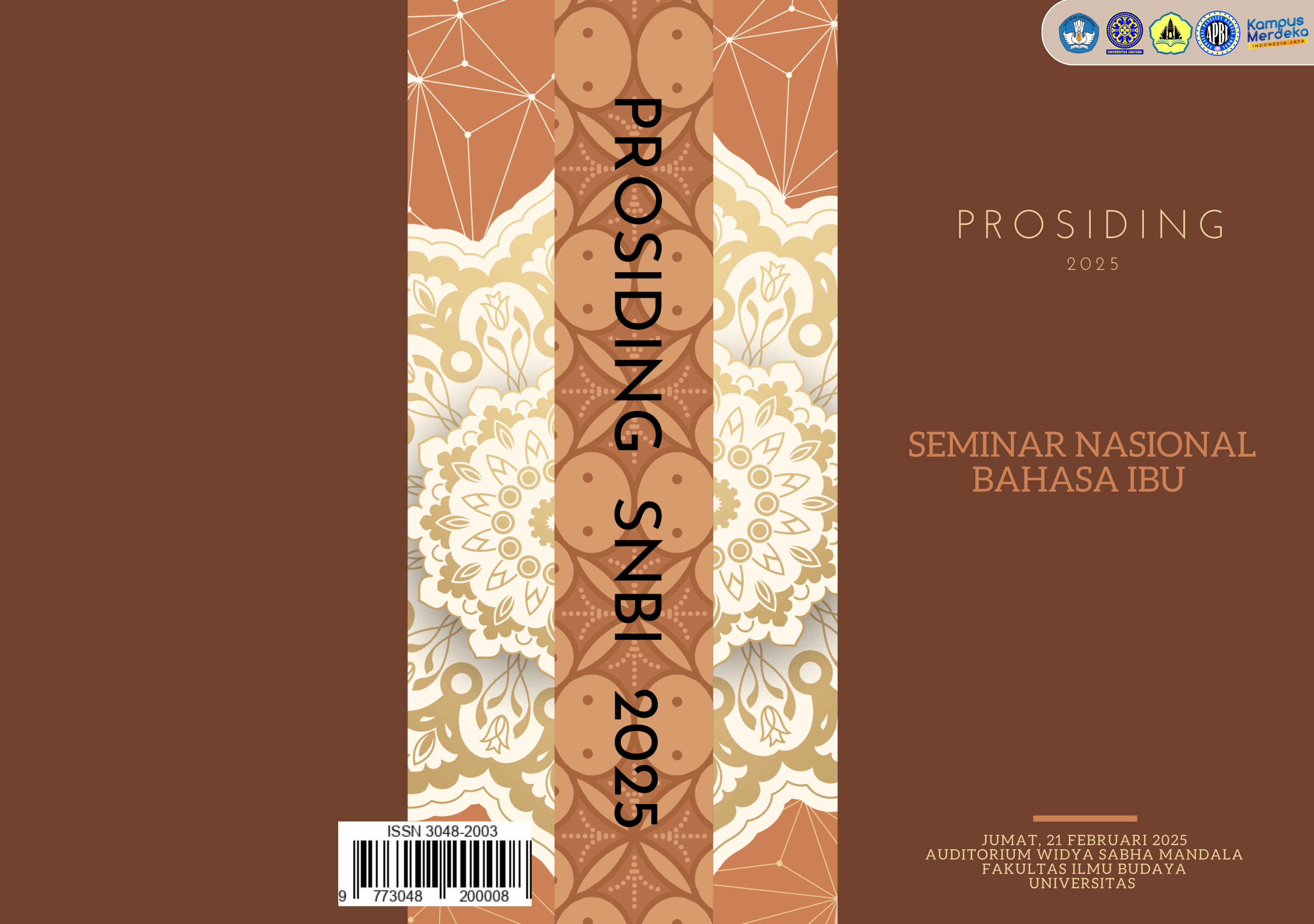DAYA BAHASA IBU DALAM PENAMAAN SESAJI PADA UPACARA SAPARAN KI AGENG WONOLELO: KAJIAN ANTROPOLOGI LINGUISTIK
Abstract
The traditional ceremony has various offering equipment. Each bearing a name symbolizes a specific meaning and purpose. This study uses linguistic anthropology studies to explore the naming of the offerings in the Saparan Ki Ageng Wonolelo Traditional Ceremony. The study focuses on the offerings' naming system, cultural meanings, and linguistic power in the Saparan Ki Ageng Wonolelo traditional ceremony. The data in this research consists of a lexicon of offering names that can illustrate the beliefs regarding cultural meanings within the sequence of the Saparan Ki Ageng Wonolelo traditional ceremony. The primary data in this study includes the “Synopsis of 55 Years of the Saparan Traditional Ceremony”, the book “Traditional Saparan Ceremony in Gamping and Wonolelo Yogyakarta”, a YouTube video of History of Ki Ageng and Pondok Wonolelo, as well as interview with the caretakers of Ki Ageng Wonolelo's tomb. The data analysis employs the semantic theory by Abdul Chaer and the linguistic anthropology approach. The results indicate that the naming of offerings in the traditional ceremony, through semantic analysis, possesses linguistic power applied in daily life. The symbolism in the traditional Saparan Ki Ageng Wonolelo ceremony reflects the Wonolelo community’s cultural identity.

 Dikelola oleh Program Magister dan Doktor Ilmu Linguistik Fakultas Ilmu Budaya Universitas Udayana
Dikelola oleh Program Magister dan Doktor Ilmu Linguistik Fakultas Ilmu Budaya Universitas Udayana
